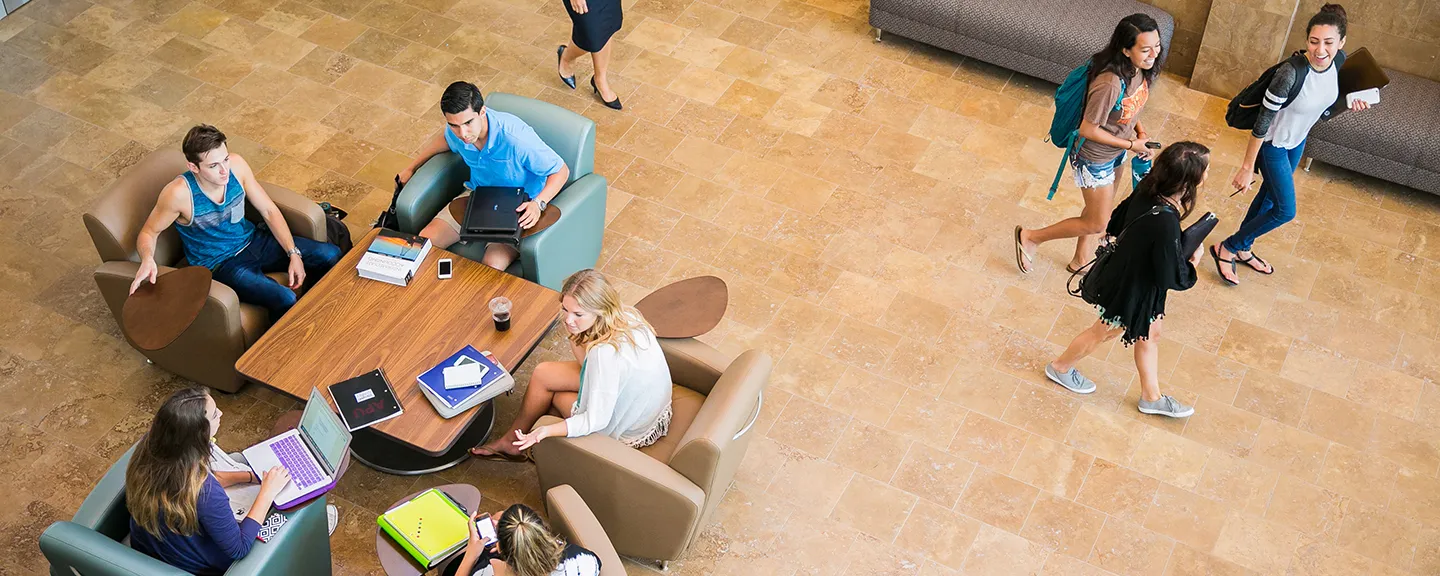- Home
- >
- APU Articles
- >
- News Article
Four Ways to Connect With Your Major Before School Starts
May 24, 2018 | Written By Ashley Eneriz

Don’t make the same mistake that many college students do. They enroll, get their list of required units, and just attend class. But sometimes, by the middle of junior year, they realize they don’t love the major—or worse, they graduate and don’t know how to apply their learned skills in the real world.
When you experience your major outside of the classroom and textbooks, you can confirm whether or not it is your real calling and, if so, equip yourself with experience that can propel you into a career in the field that you love.
Don’t wait until the first day of classes to connect with your major. You can get a jump-start on meeting people in your area of study—and discover how to get involved with your field on a deeper level—by employing the following four strategies.
1. Look for On-Campus Opportunities
There are plenty of activities at your school that can enhance your skills in a particular major. Theater majors can attend on-campus productions or rehearsals, music majors can enjoy school performances, and journalism majors can pore over the student newspaper or blog.
Before you officially start classes, ask the professor (or student) in charge of these extracurricular activities if you can help out. Not only will you show that you are eager to be involved, but you’ll start gaining experience within your major and sharpening your skills before classes even begin.
2. Start Networking
Another great way to get more information about your major is to ask an insider. Find ways to connect with professors and alumni in your field. Offer to buy them a cup of coffee on campus or ask if they will answer a few questions over email or a quick phone call.
Let them know what major you are studying, and ask them for advice on what you can do to connect with your major to benefit you after graduation. Ask them what jobs, internships, volunteer opportunities, and classes (that are outside the degree requirements) they recommend pursuing.
Your family members and acquaintances can also be a great resource for finding professionals to connect with in your field. Perhaps your mom knows an accountant you can shadow, or your favorite teacher from elementary school would welcome you into their classroom once a month to do a hands-on teaching activity.
3. Attend Conferences or Speaking Events
Research upcoming conferences and speaking events in your field. You can find many opportunities online if you search for your major along with the term “conferences/events.” This will lead you to several professional events within your field.
Contact the event coordinator and ask if they offer volunteer opportunities for college students. If this isn’t an option, ask if they can recommend similar events that are affordable for college students who want to connect with their major on a professional level.
4. Make the Most of Orientation
New student orientations aren’t just for locating the dining hall. Try using this time to connect with students in the same field of study as you and meet the professors and faculty who will be teaching your classes. This is when you can ask about all the opportunities and internships available, as well as get a feel for what additional classes can benefit you.
For example, a screenwriting class might not be required for your journalism major, but the professor teaching the class is always looking for students to write small plays for a local theater. The experience can be fun and add an extra edge to your résumé once you graduate. In the June and July Summer Orientation sessions, Azusa Pacific University offers unique academic major connect sessions that enable students to have separate information meetings solely for their field of study. You can get to know some of the faculty you will one day study with, as well as meet potential classmates before the start of your first year.